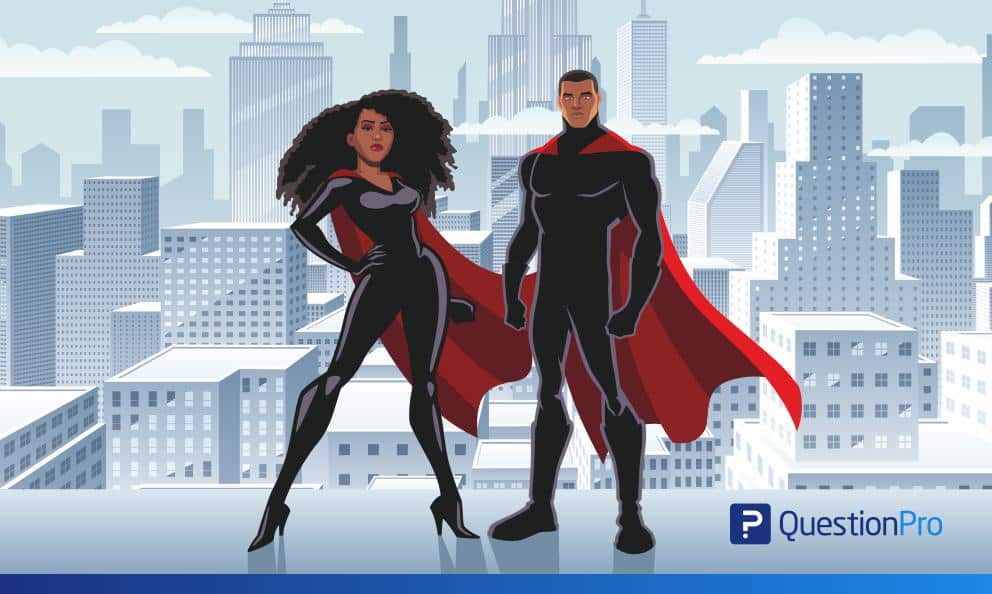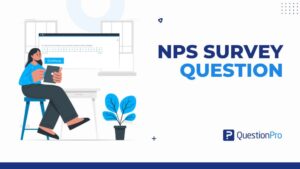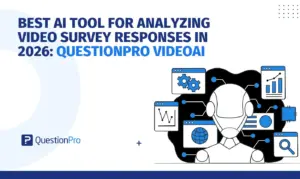
What a time it is for African Americans to be represented in comic book movies, today’s most popular film genre. The ending of Avengers Endgame strongly suggests the next Captain America will be Black, while Black Panther remains the highest-grossing solo superhero movie ($1,346,913,161 globally). On the DC side, its most popular movie character is Aquaman ($1,147,761,807 globally), portrayed by a person of color (Jason Momoa) – so that has to count for something.
Does this mean African Americans are being represented fairly these days in comic book movies (or Hollywood for that matter)?
That’s a complicated question that requires a sense of context by understanding the history and evolution of the Black comic book hero. To understand this complexity, we surveyed more than 500 African Americans to gauge their perception, attitude and overall opinion, when it comes to Black superheroes. The research found that, when it comes to African American being well-represented in comic book movies, 39 percent agreed while 42 percent of the respondents disagreed. However, 80 percent of the respondents claimed they presently or have in the past read comic books. While this is a surprisingly high number, it is not odd, considering that Black Panther was a nationwide cultural phenomenon.
Yes, it’s complicated, so let’s take a historical journey to understand the Black superhero and its impact on American culture.
The First Black Superpower
African Americans appeared widely in 20th-century comic books as both sidekicks and heroes, under such brands as All-Negro Comics and Timely Comics. Yet the world wouldn’t see its first Black superhero until July 1966, in an issue of Marvel’s Fantastic Four (#52).
That was Black Panther.
Created by Stan Lee and Jack Kirby, T’Challa — a.k.a “Black Panther” — wasn’t a big seller. The character, however, was broadly accepted along with other minorities in Marvel’s continual multicultural rollout throughout the decades (inclusivity and social causes were always part of Lee’s visionary marketing). What’s more, Black Panther served two important purposes, according to an article by Noel Murray in The Week:
- Becoming a cultural icon for the burgeoning Black Power movement (and later black middle class)
- Presenting a well-rounded character instead of a two-dimensional trope, which would set the tone for future Black and other minority characters
Three years after Black Panther’s debut, Marvel introduced Falcon (today’s new Captain America in his film version, as mentioned). DC would shortly follow suit when Kirby switched companies and created Black Racer for his series New Gods (1971), followed by the introduction of John Stewart, an architect who becomes Hal Jordan’s new backup Green Lantern (1972). (Murray explains that Stewart was far from a well-rounded character, falling into the “angry Black man” trope.)
No Black superhero starred in his own mainstream comic title until 1972 when Luke Cage debuted for Marvel in Luke Cage, Hero for Hire. As for DC, its first Black superhero series was Black Lightning in 1977.
According to the Ebony/QuestionPro study, Black Panther is the most popular Black male superhero (50 percent), with Blade in second (15 percent). (Superman, the American dream archetypal image, is the African American’s favorite non-Black superhero.)
However, Black Panther (or any of the characters above) is not the highest-selling Black comic book. That achievement falls to another character whose story adds to the complex history of Black superheroes.
The Trojan Horse Superhero
According to various comic book sales statistics, Spawn is one of the best-selling comic books in history. The comic book selling more than 150 million copies is impressive on its own, but even more so considering that Spawn debuted in 1992, long after other mega-selling superheroes like Superman, Batman, or Spider-Man.
Created by Todd McFarlane for Image Comics, the character Spawn has always been an unusual figure, more of a demonic mercenary than a traditional cape crusader. What’s fascinating is that McFarlane didn’t reveal to readers that his masked antihero was African American until the series was in full swing and already a runaway success. The “content of the character” was sold first — in the form of Spawn’s origin story, personality and powers — and then his skin color was revealed to geekdom. Spawn remained hugely successful for years, even if its 1997 film adaptation was tepidly received (but it should be noted that Michael Jai White, who played Spawn, became the first African American to portray a comic book superhero in a major motion picture).
One could argue that the edgy and visceral Spawn brand would pave the way for the huge success of Westley Snipes in the Blade trilogy (grossing more than $800 million globally, an impressive feat for an R-rated franchise). If you add to this the box office success of Will Smith’s Hancock (2008) and Laurence Fishbourne’s iconic portrayal of Morpheus in The Matrix trilogy, then it’s no surprise that Black Panther would engage the interest of all races once he appeared in film.
It seems Black Panther has come full circle as both an American and Black icon – but we shall see if the Spawn film reboot with Oscar-winner Jammie Foxx can take it even higher.
Without a doubt, Black superheroes have come along way, using various means, but there is still a major problem: The Black female superhero.
Only One Storm
Despite the breakthrough and scene-stealing performances of Danai Gurira (Okoye) and Lupita Nyong’o (Nakia) in Black Panther or Zazie Beetz (Domino) in Deadpool 2, Black female superheroes have been grossly underrepresented in all mediums.
The most recognized and popular female Black superhero would be the Kenyan Ororo Munroe as Storm. She was part of a wider Black superhero rollout in the late 70s and early 80s that included Cyborg, Deathlok, and Blade — even becoming the eventual leader of the X-Men. As far as the successful X-Men film franchise, both Halle Berry and Alexandra Shipp’s portrayals of Storm have been received with mixed results.
Results from our study show that Storm is easily the most popular black female superhero (47 percent), followed by Bumblebee (seven percent), Nubia (six percent), and Vixen (six percent). If you include all other Black female superheroes ever created for comic books, only Storm has appeared in a movie adaptation (please don’t make me admit that Cat Woman was ever made). There are no plans for a Nakia or Domino origin-story film – although Jurnee Smollett-Bell will be playing Black Canary in DC’s upcoming Birds of Prey.
In short and for the most part, Black female superheroes are still stuck somewhere in the early 60s when it comes to wide representation.
Mirror, mirror on the Black wall
Black superheroes were a reaction and action to their specific eras – a reflection of African American culture and struggles, as well as a looking glass into hopeful futures.
Black Panther appeared in a time of turmoil and civil rights battles, followed by other gritty characters like the urban Luke Cage. The principled but disabled Cyborg and the immigrant, mutant Storm are apt representations of African Americans during the Reagan Era – with Spawn as the culmination in the early 90s as a wrathful force against an oppressive society (remember the Los Angeles and St. Petersburg riots?). Blade can be seen as the African American fight against the vampiric forces of police brutality and mass incarceration during the Bush and Clinton presidencies. Black Panther in his film incarnation is the return of 60s activism in the #BlackLivesMatter era, as well as the symbol of what is best and noble in African Americans.
Beyond this Jungian speculation, one must admit Black superheroes have been successful in terms of comic book and movie ticket sales. The dollars made by Spawn, Blade, and Black Panther don’t lie. The path has been uneven and even murky, but it has certainly created role models and epic stories that cut across all demographics.
But there is much ground to be made (especially with Black women). The success of African Americans in comic book movies has not bled into the perception Blacks have of Hollywood’s portrayal of them. As illustrations, the study further found that:
- 83 percent of respondents agree African Americans are stereotyped in film or television
- 59 percent of respondents agree that African Americans are cast for no other reason but to add diversity
- 71 percent agree that African Americans get killed off more/earlier than other characters
There is no cape crusader coming to change this, but there is the creativity of writers and artists who take risks to capture the zeitgeist of our culture, imperfectly bringing hope to one Black child’s imagination at a time.







